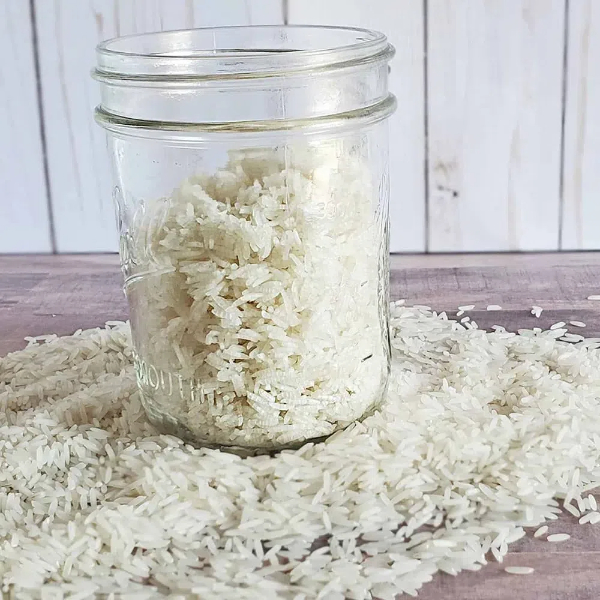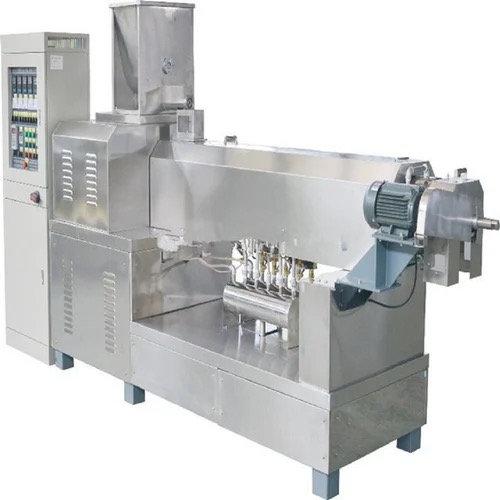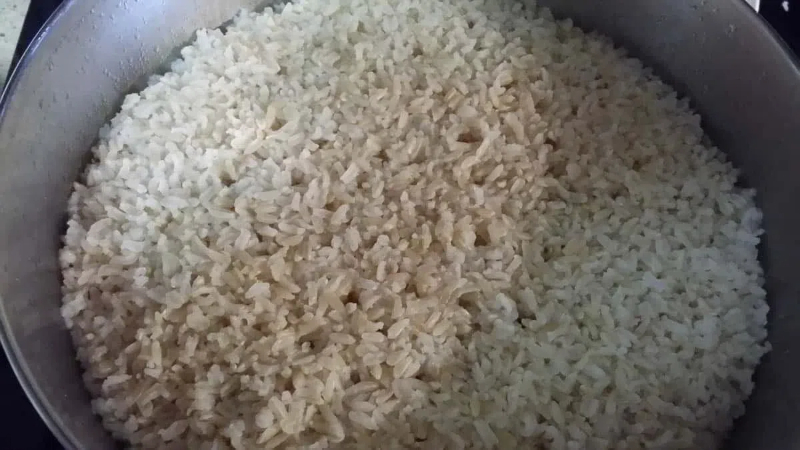
Content Menu
● 1. Introduction to Instant Rice Production
● 2. Core Components of Industrial Dehydration Machines
>> 2.1 Thermal System Architecture
>> 2.2 Airflow Management
>> 2.3 Material Handling Systems
>> 2.4 Control Interfaces
● 3. Step-by-Step Drying Process Explained
>> 3.1 Pre-treatment Phase
>> 3.2 Primary Drying Stage
>> 3.3 Final Conditioning
● 4. Technical Innovations in Modern Dehydration
>> 4.1 Heat Recovery Systems
>> 4.2 AI-Optimized Drying
>> 4.3 Sanitary Design Features
● 5. Quality Control Metrics
● 6. Comparative Analysis: Dehydration Methods
● 7. Case Study: Optimizing Production
● 8. DIY vs. Industrial Dehydration
● 9. Global Market Trends (2023–2030)
● 10. Maintenance Best Practices
● Conclusion
● FAQ
>> 1. How does rice variety affect dehydration parameters?
>> 2. What's the ROI for upgrading to a heat pump dehydration machine?
>> 3. Can these machines handle fortified rice?
>> 4. What safety certifications are critical?
>> 5. How to troubleshoot uneven drying?
● Citations:
Instant rice has revolutionized modern food consumption by offering a quick, shelf-stable alternative to traditional rice preparation. At the heart of this innovation lies the dehydration machine for instant rice, a critical piece of equipment that ensures product quality, safety, and scalability. In this comprehensive guide, we explore the science, mechanics, and applications of these machines in industrial food production.

1. Introduction to Instant Rice Production
Instant rice undergoes a multi-stage process to achieve its signature "ready-in-minutes" convenience. The journey begins with raw rice grains (typically long-grain varieties like Jasmine or Basmati), which are:
1. Cleaned: Removal of husks, stones, and impurities
2. Pre-cooked: Steam or boiling water partially gelatinizes starch molecules
3. Dehydrated: Moisture reduction from ~70% to 8-12%
4. Milled: Processed into uniform flakes or grains
The dehydration machine for instant rice plays a pivotal role in Step 3, determining the product's texture, rehydration speed, and shelf life.
2. Core Components of Industrial Dehydration Machines
Modern dehydration machines for instant rice integrate advanced technologies for precision drying:
2.1 Thermal System Architecture
Heat Sources:
- Electric resistance heaters (for small-scale operations)
- Natural gas burners (high-capacity industrial models)
- Heat pump systems (energy-efficient option reducing 40% energy use)
- Temperature Range: 60°C–120°C (140°F–248°F), adjustable per rice variety
2.2 Airflow Management
- Axial Fans: Move 2,000–5,000 CFM (cubic feet per minute)
- Air Distribution Plenums: Ensure ±2°C temperature variance across trays
- Exhaust Ventilation: Removes humid air at controlled rates
2.3 Material Handling Systems
- Stainless Steel Mesh Belts: FDA-compliant, corrosion-resistant
- Multi-tier Drying Trays: Maximize space efficiency (up to 30 layers)
- Automatic Feeders: Regulate rice distribution (50–200 kg/m² loading density)
2.4 Control Interfaces
- PLC (Programmable Logic Controller) panels
- Real-time moisture sensors (NIR or capacitive types)
- HMI (Human-Machine Interface) touchscreens
3. Step-by-Step Drying Process Explained
3.1 Pre-treatment Phase
- Blanching: Rice is briefly exposed to 85°C steam to deactivate enzymes
- Surface Water Removal: Centrifugal spin-drying reduces initial moisture
3.2 Primary Drying Stage
1. Constant Rate Period (0–2 hours):
- High airflow (3 m/s) at 100°C removes free surface moisture
- Energy consumption: 1.2–1.8 kWh/kg water evaporated
2. Falling Rate Period (2–6 hours):
- Temperature reduced to 70°C to prevent case hardening
- Moisture gradient management prevents cracking
3.3 Final Conditioning
- Equilibrium Drying: Slow drying at 50°C balances internal/external moisture
- Cooling Zone: Brings rice to 30°C before packaging
4. Technical Innovations in Modern Dehydration
4.1 Heat Recovery Systems
- Recapture 60% of exhaust heat through heat exchangers
- Reduce energy costs by $12,000/year per machine (based on 24/7 operation)
4.2 AI-Optimized Drying
Machine learning algorithms adjust parameters based on:
- Rice variety (e.g., brown vs. white rice)
- Ambient humidity levels
- Batch size fluctuations
4.3 Sanitary Design Features
- CIP (Clean-in-Place) spray nozzles
- Antimicrobial belt coatings (NSF-certified)
- HEPA filtration for intake air

5. Quality Control Metrics
| Parameter | Target Range | Measurement Method |
| Moisture Content | 8–12% | Moisture balance (AOAC 934.01) |
| Rehydration Ratio | 3:1 (water:rice) | Gravimetric analysis |
| Color (L value) | 65–75 | Chroma meter |
| Broken Grains | <5% | Sieve analysis |
6. Comparative Analysis: Dehydration Methods
| Method | Temp Range | Drying Time | Energy Efficiency |
| Hot Air Dryers | 80–120°C | 4–8 hrs | ★★☆☆☆ |
| Heat Pump Dryers | 40–70°C | 8–12 hrs | ★★★★☆ |
| Freeze Dryers | -30°C | 18–24 hrs | ★☆☆☆☆ |
| Microwave-Vacuum | 60–80°C | 1–2 hrs | ★★★☆☆ |
Note: Hot air drying remains dominant for instant rice due to cost-effectiveness.
7. Case Study: Optimizing Production
Client Profile:
- Thai instant rice exporter
- Annual output: 15,000 tons
Challenge:
Reduce drying time while maintaining ISO 22000 standards
Solution:
- Installed dehydration machine for instant rice with:
- Two-stage heat recovery
- Variable frequency drive (VFD) fans
Results:
- Drying time reduced by 22%
- Energy costs lowered by 18%
- Moisture uniformity improved to ±0.8%
8. DIY vs. Industrial Dehydration
| Factor | Home Dehydrator | Industrial Machine |
| Capacity | 1–5 kg/batch | 500–2,000 kg/hour |
| Moisture Control | Manual | Automated (±0.5%) |
| Rehydration Time | 8–10 mins | 5–7 mins |
| Shelf Life | 6 months | 2–3 years |
9. Global Market Trends (2023–2030)
- CAGR: 6.8% (projected growth for instant rice sector)
Demand Drivers:
- Urbanization (70% of Asian households now use instant rice)
- Military/commercial catering needs
Sustainability Focus:
- 85% of new dehydration machines for instant rice feature energy recovery
10. Maintenance Best Practices
1. Daily:
- Inspect belt tension (15–20 N/mm²)
- Clean air filters (ΔP < 50 Pa)
2. Monthly:
- Calibrate moisture sensors
- Lubricate bearings (Food-grade NSF H1 grease)
3. Annual:
- Replace gaskets and seals
- Test thermal efficiency (≥68% for ENERGY STAR compliance)
Conclusion
The dehydration machine for instant rice represents a synergy of food science and mechanical engineering, enabling mass production of a pantry staple consumed globally. From precision temperature control to AI-driven optimization, these systems continue evolving to meet demands for efficiency and sustainability. For OEM partners like our factory, understanding these technical nuances ensures we deliver equipment that exceeds international benchmarks in food processing technology.

FAQ
1. How does rice variety affect dehydration parameters?
Long-grain varieties require lower temperatures (70–80°C) versus short-grain (80–90°C) to prevent excessive starch gelatinization.
2. What's the ROI for upgrading to a heat pump dehydration machine?
Typical payback period is 2–3 years through 35–40% energy savings versus conventional dryers.
3. Can these machines handle fortified rice?
Yes, modern dehydration machines for instant rice can process vitamin-coated grains with <2% nutrient loss.
4. What safety certifications are critical?
Look for CE, UL, and ISO 22000 compliance, plus EHEDG guidelines for hygienic design.
5. How to troubleshoot uneven drying?
Check for:
- Airflow obstructions (clean filters)
- Temperature sensor drift (±1°C tolerance)
- Improper bed depth (optimize at 5–8 cm)
Citations:
[1] https://www.darin.cn/How-does-an-instant-rice-machinery-line-work-id61969417.html
[2] https://www.kelidmachine.com/Product/Instant-Rice-Machine
[3] https://septree.com/pages/what-is-the-working-principle-of-food-dryer
[4] https://www.thepurposefulpantry.com/diy-instant-rice-with-a-dehydrator/
[5] https://www.youtube.com/watch?v=IEdJpF63s_Y
[6] https://www.aimheatpump.com/Instant-Rice-Drying-Machine
[7] https://www.bxdryer.com/news/industry-news/how-to-dry-glutinous-rice.html
[8] https://patents.google.com/patent/CN102342446B/en
[9] https://m.loyalfoodmachine.com/news-3086-unlock-the-secret-to-instant-rice-porridge-making-machine.html
[10] https://www.commercialdehydrators.co.uk/dehydrating-recipes/dehydrated-cooked-rice
[11] https://www.dehydratorsamerica.com/dehydrating-recipes/dehydrated-cooked-rice
[12] https://cooking.stackexchange.com/questions/96490/is-it-possible-to-safely-make-dry-instant-rice
[13] https://extremewellnesssupply.com/blogs/news/how-does-a-dehydrator-work
[14] https://www.alibaba.com/showroom/rice-dehydrator-machine.html
[15] https://www.tiktok.com/@thruhikers/video/7069090582387363077?lang=en
[16] https://www.alibaba.com/product-detail/Instant-Rice-7-mins-Rice-Processing_1601243865041.html
[17] https://www.shutterstock.com/search/food-dehydrator
[18] https://www.youtube.com/watch?v=oiKk4nOeDKo
[19] https://www.reddit.com/r/dehydrating/comments/1ih65tx/odd_question_about_rice/
[20] https://www.aromaco.com/faq/food-dehydrators/
[21] https://dayifoodindustry.com/best-drying-equipment-for-fortified-rice-instant-rice-artificial-rice-fluidized-bed-dryer/
[22] http://www.knowledgebank.irri.org/step-by-step-production/postharvest/drying/mechanical-drying-systems
[23] https://www.commercialdehydrators.com.au/dehydrating-recipes/dehydrated-cooked-rice
[24] https://www.seriouseats.com/best-food-dehydrators-5216308
[25] https://www.youtube.com/watch?v=0NjLX5Cg8i4
[26] https://www.shutterstock.com/search/rice-mill-process
[27] https://www.shutterstock.com/search/rice-dryer
[28] https://www.youtube.com/watch?v=Zl4wTcCPJu0











